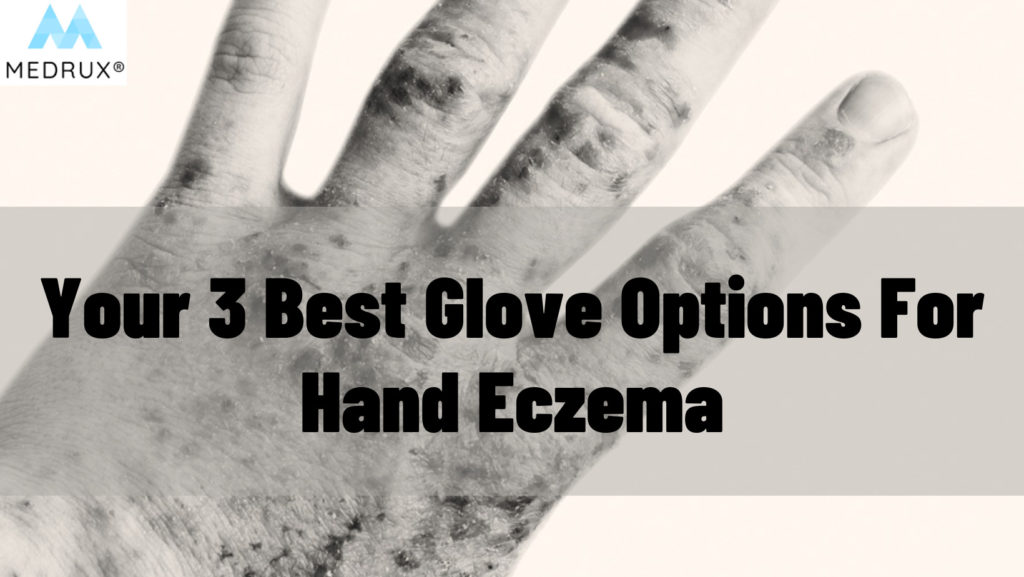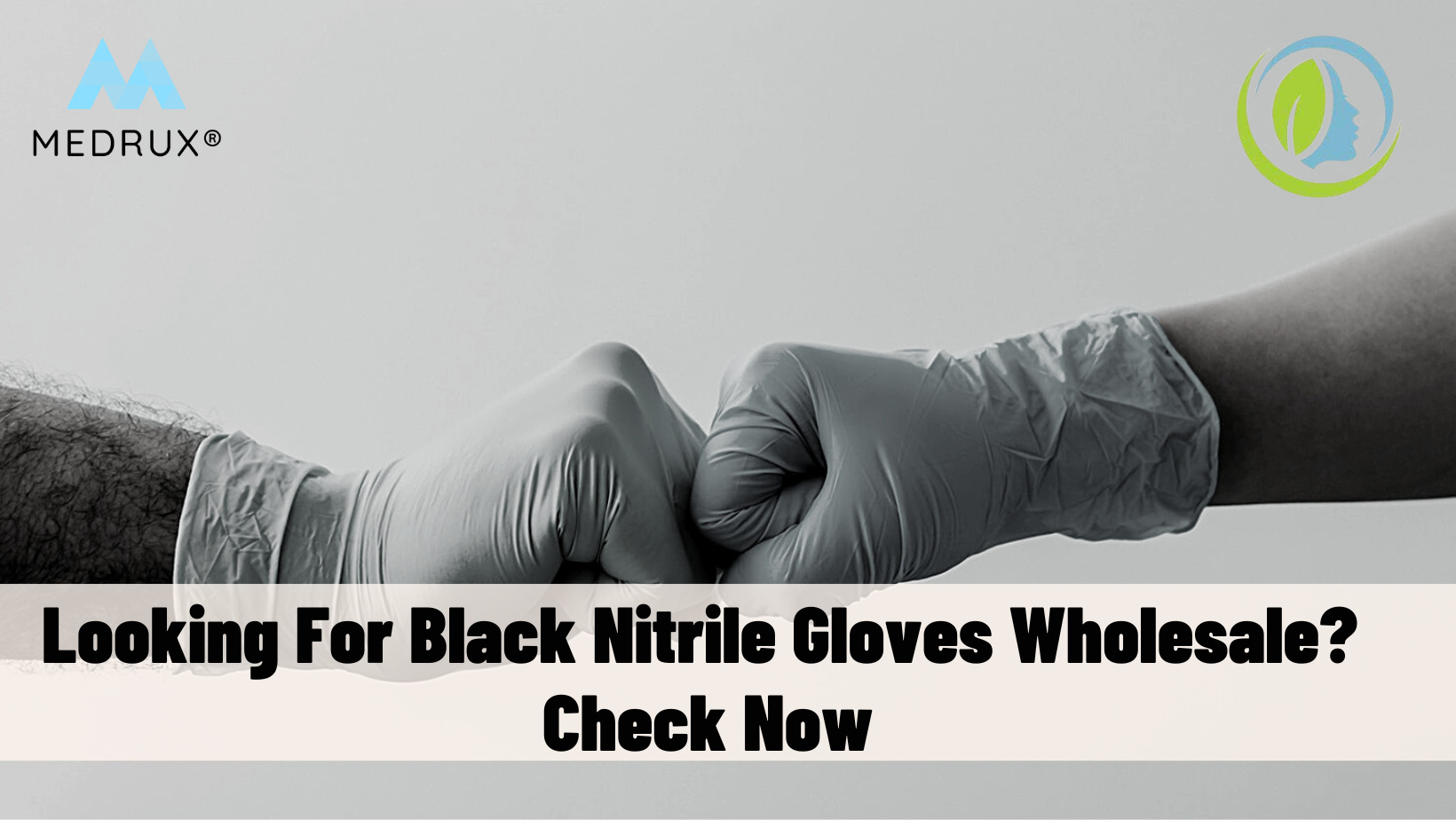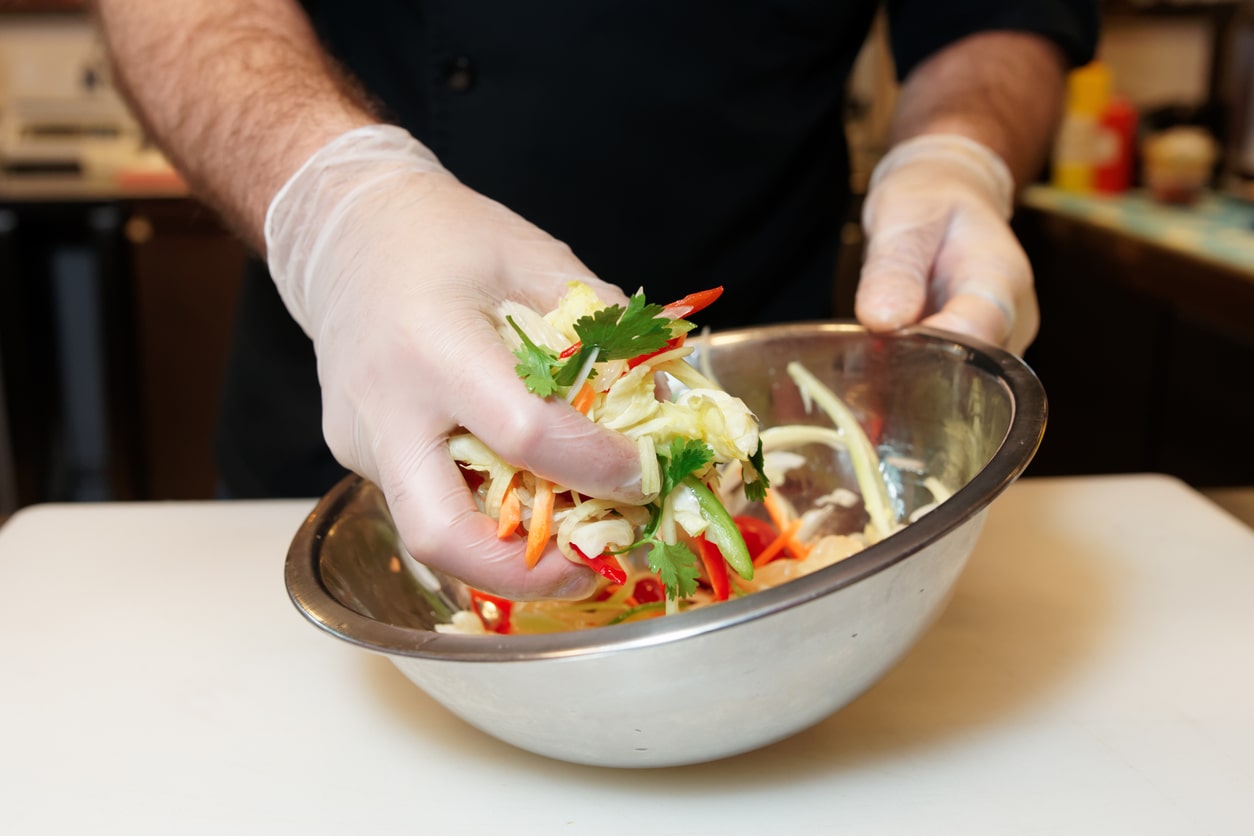With the COVID-19 outbreak, hand eczema is now more frequently seen.
Hence, more and more customers are looking for eczema gloves right now.
People always wear disposable gloves and wash their hands more frequently than they used to.
“Not that it’s a bad thing,” but exposing your hands to water, soap, disinfectant, and alcohol-based hand gels could lead to dryness and itching.
If you have been lucky enough to avoid hand eczema in such rough times, you must have seen someone in your circles struggling with it.
Not only an adult but also a child can have hand eczema.
If you are here to find out more and more about eczema gloves so you can help your loved ones relieve the pain of such a painful condition,
You chose the right article; in this article, we will go through the following:
- What is hand eczema, and how can you avoid it?
- What are eczema gloves?
- Why is it essential to wear eczema gloves?
Moreover, we will help you in
- Choosing the best eczema gloves. What should you look for?
- The best eczema gloves for you and your children.
- How to wear eczema gloves?
- How to wash eczema gloves
Let’s begin.
What is hand eczema?
Hand eczema is one of the most common types of eczema. It’s also called atopic hand dermatitis.
Eczema affects up to 15 million Americans. It is more common in children but may also develop for the first time in adults (1) (2).
It’s a non-contagious condition, so don’t worry if you shake hands or touch people if you have it.
It usually affects the palms but can also extend to fingers, knuckles, and wrists.
While some people just develop small patches of red skin, others may have more widespread inflamed skin all over their bodies.
The main symptoms are dryness, itching, and redness.
Your skin begins to feel dry, scaly, and thickened.
You can feel cracking, soreness, and, in some cases, bleeding and blisters.
When it flares up, your fingers might become swollen.
It can be excruciatingly painful, and you may be unable to do simple things like holding a pen or a cup of tea.
What causes hand eczema?
It’s caused by immune system activation, genetic and environmental, and stress factors.
You’re at high risk of having atopic eczema if you’re:
- Female
- African American
- Diagnosed with hay fever or asthma.
- Part of a family with a history of dermatitis, hay fever, or asthma.
Some people have sensitive skin. And for them, it’s much easier to develop hand eczema as their skin is very delicate and can be easily affected by irritants that trigger the symptoms of eczema.
What is the kind of irritant that could trigger eczema?
Whether you have sensitive hands or not, many factors could trigger eczema, such as:
- Repeated and prolonged exposure to water
- Soaps
- Disinfectants
- Bleaches and detergents
- Shampoos
- Polishes
- Adhesives (glues) and solvents
And many other materials that people could use in their daily lives; sometimes food and vegetables can trigger it as well.
Can hand eczema be treated?
Well, it’s a long-term condition. The treatments can help to relieve, improve, and control the symptoms over time.
Use emollient or moisturizing creams and ointments to take care of the dry skin daily, and use topical corticosteroids to reduce swelling, redness, and itching during flares.
However, it is best to seek medical advice immediately if you’re experiencing severe eczema symptoms like fever or infection.
The most important thing is to avoid triggers and reduce the itching.
To avoid eczema, there are many precautions you can consider, such as:
- Washing your hands with small amounts of fragrance-free soap
- Dry your hands well.
- Always apply a fragrance-free moisturizer.
- Wearing washing gloves and cleaning gloves when doing laundry, washing dishes, cars, etc.
- Avoid wearing gloves for long periods.
- Make sure to wear hypoallergenic gloves.
- Wearing gloves when preparing food is especially important if your hands are in frequent contact with meat, onions, and citrus fruits like lemons, oranges, etc.
Finally, it’s essential to wear eczema gloves to avoid triggers and reduce itching. Let’s see what they are!
What are eczema gloves?
Eczema gloves can be used for eczema and other skin conditions such as psoriasis, allergic contact dermatitis, and dermatomyositis.
The slightest irritation can trigger eczema. That’s why eczema gloves should be skin-friendly and made of soft fabrics because those who suffer from eczema usually have sensitive skin to fabrics that may rub and chafe the skin.
Here are some examples;
-
Cotton
It is a natural product, and because it is designed and manufactured into gloves, it has many advantages, such as its ability to control moisture, insulate, and provide comfort; it is also a hypoallergenic and durable fabric.
-
Bamboo
It is exquisitely soft and silky smooth to the touch; In addition to being extremely lightweight and breathable, you’ll forget you’re wearing gloves because they’re super comfortable and thin.
-
Tencel
It’s one of the softest fabrics in the world. It stays soft even after wet wrapping, unlike cotton, which can stiffen when dried.
Tencel manufacturers describe it as a combination of the softness of cotton, the breathability of linen, the smoothness of silk, and the antibacterial and antimicrobial properties of wool.
It’s eco-friendly and made with no impurities or dyes.
What makes Tencel great is that it can be used to fight bacteria?
Because it has anti-bacterial properties, it inhibits the growth of bacteria.
Additionally, it holds 50% more moisture than cotton, reducing skin infections that could be associated with eczema.
What’s more, it’s naturally itching suppressing, so it helps relieve the itching sensation and prevents scratching, so it’s perfect for making eczema gloves.
With all these different natural materials and their exquisite properties, buying eczema gloves can be comfortable and help relieve your pain.
Let’s see more details on why you should wear eczema gloves.
Why is it essential to wear eczema gloves?
We use our hands for almost everything.
Imagine your hands are itching and dry all the time. How painful is this?
When sensitive, broken skin is left open and unprotected, it can further irritate or become infected.
That’s why it’s essential to wear eczema gloves.
-
They keep your hand moisturized.
Daily wearing of fabric gloves to prevent loss of moisture and lipids from the surface of the hands is suitable for controlling hand eczema (3)
Eczema gloves are handy after applying a thick layer of moisturizing lotion or cream. It gives your sore hand a chance to heal and relieves the pain.
Not only can they keep your hands moisturized, but they also keep your hands cool and away from drying and chapping in cold weather.
-
They help stop painful scratching hence, enhance the quality of life
If you have ever experienced eczema, you would have known by now that eczema gets worse at night.
Sometimes you wake up with your skin still red and raw, unhealed, because you have been scratching it involuntarily to relieve pain.
Scratching damages our skin even more and, worse, triggers the release of histamines, leading to more sensations of itching and, hence, scratching.
It’s a vicious cycle.
Eczema gloves protect you from painful scratching.
In addition to the pain, a study showed that eczema could cause fatigue, daytime sleepiness, and insomnia, and it could increase the risk of psychological disorders (4)
But the good news is that we can overcome it with eczema gloves as they help you sleep well at night without painful itching and scratching.
-
They help fight against infections
Leaving the hands blistered, cracked, and sored opened to any bacteria found in the air or things you might be touching, is not the wisest thing you could do.
In addition to moist and wet conditions that you could have your hands in sometimes, such as washing the dishes or cleaning the car, There’s an increased risk of skin infections.
So, wearing eczema gloves is truly important, especially eczema gloves made or embedded with antimicrobial fabrics such as Tencel.
-
They are magical for children with eczema
Regarding children, having eczema could be truly sad and painful.
Moreover, keeping your child from scratching their hands is not the easiest thing.
So, eczema gloves are genuinely vital for kids with hand eczema.
What to look for when buying eczema gloves?
Although fabric and materials are considered the most essential aspect when choosing suitable eczema gloves, there are many different things you also need to keep in mind while buying an eczema glove.
-
Eczema gloves should be breathable
The last thing we must deal with is exposing our sore hands to sweat.
This will irritate the skin barrier that we are trying to heal.
Some studies showed that wearing occlusive gloves for a long time on hands affected by eczema increases the count of bacteria (5)
That’s why the eczema gloves must be made from a breathable natural material that absorbs sweat like cotton, bamboo, or Tencel fabric.
-
Eczema gloves should be flexible
Flexibility helps put on and take off the gloves easily and perform basic daily activities.
Eczema gloves that contain elastin or latex have an excellent fit on your hand and enable you to move your hands freely.
However, some types of eczema gloves contain latex-free elastin if you have a latex allergy.
-
Eczema gloves should be hypoallergenic
We’re already trying to avoid allergens and irritants by all means.
Hypoallergenic eczema gloves are your best buddy.
They should be latex-free, silicon-free, and fragrance-free.
-
Eczema gloves should be the right amount of thickness
Eczema gloves shouldn’t be too thin or too thick.
Too thin gloves can tear easily and make the skin suspectable to irritation.
While too thick can be challenging to wear and may cause your skin to sweat, exacerbating your eczema.
Some eczema gloves are made to be fingerless with open fingertips style to allow freedom of grip and touch while performing things like using a phone, cooking, holding pens, and typing
In short, eczema gloves should be breathable, lightweight, yet not too thin.
And should be flexible and hypoallergenic; let’s see the best eczema gloves out here.
Best Eczema Gloves for Kids and adults
-
Bamboo eczema gloves
They are super soft and lightweight as they are made of 95% biodegradable bamboo; the other 5% is from lycra for stretching.
They are breathable, keeping your and your child’s hands cool and comfortable.
More importantly, they have very little stitching, so they won’t rub against your skin or bother you.
They keep children from scratching their hands while playing or at night when sleeping, and they also keep them comfortable and help heal their tender hands.
Bamboo eczema gloves can absorb sweat, so you don’t need to worry about sweat triggering your hand eczema or worsening it.
They’re used after applying an emollient cream to help keep the moisture in at night.
They work perfectly for dry and wet wrap therapy.
Moreover, they won’t stretch and be floppy over time like regular cotton eczema gloves.
-
Tencel, zinc-embedded eczema gloves
These eczema gloves are made of soft, soothing Tencel and embedded with zinc. It’s very soothing to the skin.
Why?
Zinc is found in many anti-itching products and has antimicrobial and anti-inflammatory properties; thus, it helps keep germs at bay and reduces inflammation in your burning hands, relieving pain and promoting healing.
In addition, it keeps lousy odor away,
They contain hypoallergenic latex-free elastin for stretching and form-fitting.
They have a fitting cuff that keeps them in place, so no worries about falling off while playing or sliding off at night.
Moreover, these cuffs stretch past the wrist, designed for eczema on the wrists, palms, knuckles, nails, and fingers.
-
Cotton Eczema Gloves
Natural organic cotton eczema gloves are the most hypoallergenic and environment-friendly by nature. Cotton is a naturally breathable fabric. It’s soft and delicate for sore hands.
Keeping your hands cool in the summer and warm in the winter because of the cotton’s insulating properties.
What’s more, is that they provide natural UV protection to keep your hands away from sunburns and conditions like solar dermatitis.
These cotton eczema gloves help the hands absorb the creams and ointments added. Hence, it helps moisturize and treat hand eczema, dry hands, and other skin disorders.
They are effective in managing and relieving skin conditions and can also be worn under rubber or leather gloves as a lining.
Moreover, they can be used as inspection gloves for handling jewelry, cards, and photos as they prevent dirt and fingerprints.
Some have extra elbow length, which helps prevent itching in the wrists and inside elbows.
One downside of cotton gloves is that they may shrink a little after the first wash. Nevertheless, some gloves are not made to be shrink resistant.
Now we have explored the best eczema gloves out there, let’s see some tips on how to wear them and what shall you know to look after them.
How to wear eczema gloves?
They are thin and not made for daily wear.
You should avoid lifting things or handling heavy or sharp objects.
Why?
Because this could tear and damage the gloves, making the gloves rub vigorously against your skin, triggering more inflammation.
What’s more, is that you should avoid touching boiling materials.
Yes, you’re wearing eczema gloves to protect you, and yes, they are breathable and keep your hands cool, but the hot fumes can also trigger inflammation and irritate your skin.
Ensure you keep them dry because moisture and wetness can aggravate your eczema.
They’re not for wet conditions like washing dishes or handling wet items.
However, you can still wear them under rubber gloves made for these purposes.
How to wash eczema gloves?
Eczema gloves made from bamboo can be machine washed cold or warm (not hot) in a net and on a gentle cycle.
However, they’re thinner than cotton gloves, so it’s preferable to hand wash them carefully in a mild detergent so they can last longer.
Don’t place them in the dryer; just let them hang to dry.
On the other hand, eczema gloves made of Tencel can be machine washed on a gentle cycle but only with cold water using a mild plant-based or mineral-based detergent.
You should avoid using bleach, chemicals, fabric softeners, and conditioners.
It’s a good idea to wash your Tencel eczema gloves before the first use.
In the same way as bamboo, you let them hang to dry or iron at a low temperature.
In conclusion;
Eczema gloves are indeed a magical solution for people suffering from eczema and different skin conditions,
They keep the bacteria away, help moisturize your skin and keep it healthy and healed from dryness. And protect you against the painful itching and scratching.
Eventually, it’s essential to know how to wear, what to do, and what not to do when it comes to your eczema gloves to help keep them in good shape.
We hope you know everything you wanted about eczema gloves.
If you still have any questions, we’re more than pleased to answer them.







